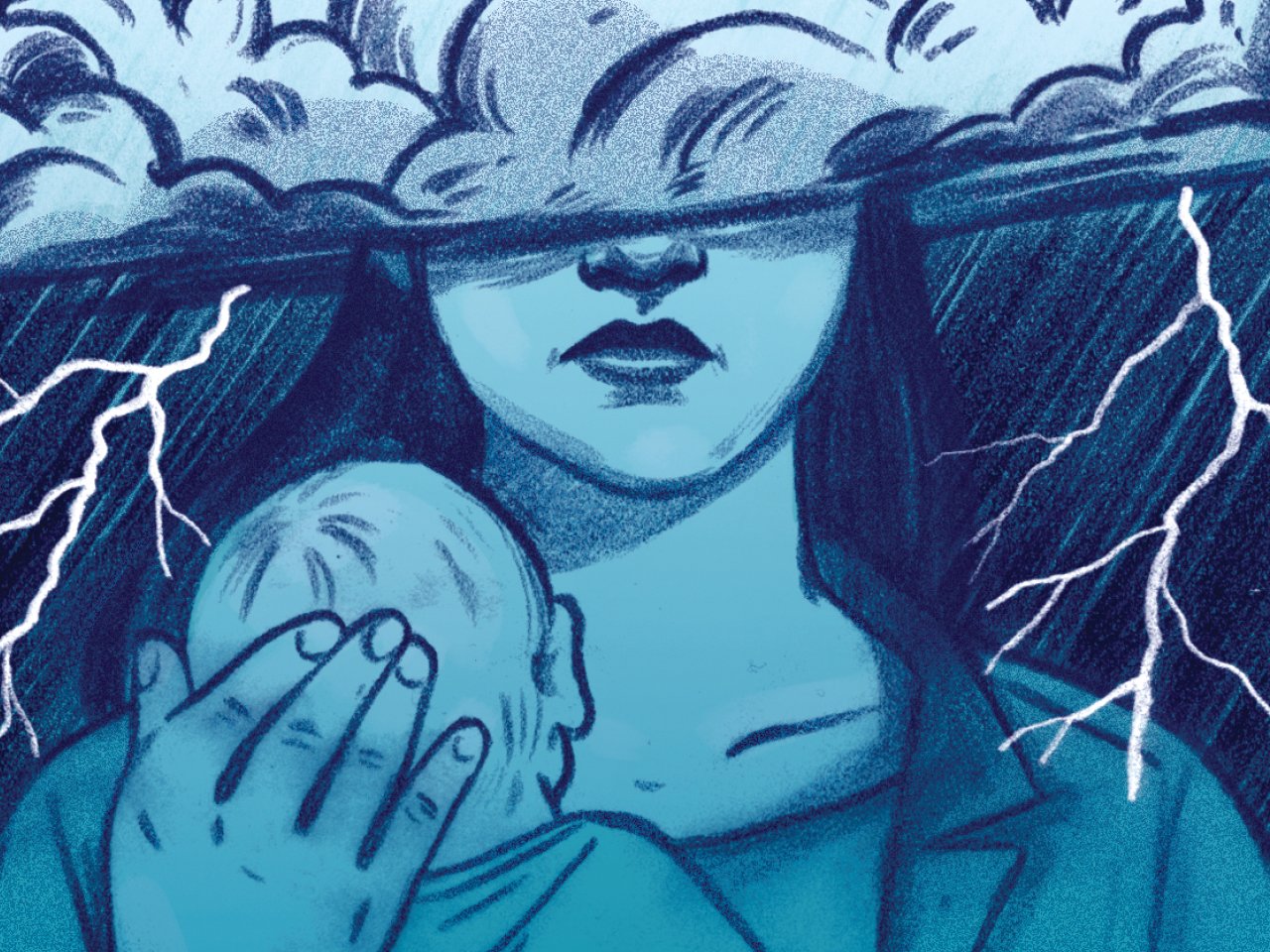BLOG POST 16: The POSTPARTUM DEPRESSION
Some symptoms of BABY BLUES:
• Mood swings.
• Unnecessary anxiety.
• Apathy.
• Irritability.
• Nervous Feeling.
• Unnecessary crying.
• Loss of concentration.
• Hunger problem.
• Insomnia.
• Depressed mentality or severe mood swings.
• Acute irritability and anger.
• Excessive crying.
• Difficulty maintaining motherly bond and relationship with the child.
• Getting distant from friends & family members.
• Loss of appetite or overeating.
• Inability to sleep or sleeping too much.
• Fatigue or lack of energy.
• Decreased interest and enjoyment in activities which they earlier used to enjoy.
• Worry and fear of not being a good mother.
• Thoughts of harming themself or their child.
• A sense of shame or guilt.
• A lack of ability to think clearly, focus, or make decisions.
• Restlessness.
• Severe anxiety and panic attacks.
• Thoughts of death or suicide arise in the mind.
Untreated, POSTPARTUM DEPRESSION may last for several months or longer.
POSTPARTUM PSYCHOSIS: A rare condition that typically develops within the first week after delivery. Its signs and symptoms can be severe. This condition can give rise to violent thoughts or behaviours and requires immediate treatment.
• Confusion and disorientation.
• Passionate thoughts about your child.
• Hallucinations and delusions.
• Sleep Deprivation.
• Extreme energy and movement.
• Madness.
• Attempts to harm themselves or their child.
According to research, the newly formed fathers are also diagnosed as a victim of POSTPARTUM DEPRESSION. Like women, men may also feel depressed or tired, feel nervous, experience anxiety, or have changes in their normal eating and sleeping patterns.
Fathers who are young, have a history of depression, experience relationship problems or are struggling financially are among the most at risk of POSTPARTUM DEPRESSION.The POSTPARTUM DEPRESSION developing in the fathers is also termed as PATERNAL POSTPARTUM DEPRESSION. POSTPARTUM DEPRESSION can have as much negative effect on partner's relationships and child development as in mothers. As such, treatment and support of POSTPARTUM DEPRESSION provided to mothers can also be beneficial in the treatment of POSTPARTUM DEPRESSION in fathers.
There is no specific reason as such for POSTPARTUM DEPRESSION, but physical and emotional issues can be the cause to some extent.
• Women having a history of depression, either at some other time in the past or during pregnancy.
• If they are a patient of bipolar disorder.
• If they have experienced POSTPARTUM DEPRESSION after the last pregnancy.
• If a close family member of women has depression or other mood-related disorders.
• If women have experienced stressful events during the past year, such as pregnancy complications, illness, or job loss.
• Women have difficulty during breastfeeding.
• Having problems with relationships with their spouse.
• Mental or economic weak base system.
• Unplanned or unwanted pregnancy.
Some complications related to POSTPARTUM DEPRESSION:
Untreated POSTPARTUM DEPRESSION can disrupt the mother-child bond and cause family problems.
For Mothers: Untreated POSTPARTUM DEPRESSION may last for months or more, even leading to a series of major depression risks for a woman's future.
For the Father: POSTPARTUM DEPRESSION can have a ripple effect, causing emotional stress for everyone. When a woman feels depressed due to delivery after becoming a new mother, the risk of depression in the child's father may also increase.
For children: Children of mothers with POSTPARTUM DEPRESSION are likely to have emotional and behavioural problems, such as difficulty sleeping and eating, excessive crying, and delayed language development.
• During pregnancy: Doctor may monitor the signs and symptoms of depression. During pregnancy, the doctor can complete the process of depression screening questionnaire with the patient. Sometimes mild depression can be managed with support groups, counselling or other treatments. In other cases, antidepressant or psycho therapy may also be suggested during pregnancy.
If newly formed fathers are experiencing symptoms of depression or anxiety in the first year after the birth of their child or after the birth of their child, if they experience any symptoms of BABY BLUES, Apathy or POSTPARTUM DEPRESSION. They may also be reluctant or embarrassed to accept it. But it is very important to talk to your health care professional as soon as possible without spending too much time.
Patients suffering from any kind of depression do not realize or accept that they are depressed. They may not be aware of the symptoms of depression. If we suspect that a friend or loved one has POSTPARTUM DEPRESSION or is developing POSTPARTUM PSYCHOSIS, we need help them seek medical attention immediately without any delay for their betterment.
For blog related suggestions and comments, please select one of the three options:
01) Email at koonalblogs@gmail.com
02) In the comment box located on the blog, comment as option, just enter your name in the Name / URL.
03) In the comment box on the blog, comment as option, select the Anonymous option.
- (KD Blogs)
✍© Kunal Deshpande.




Very well explained and clarification given....
ReplyDelete